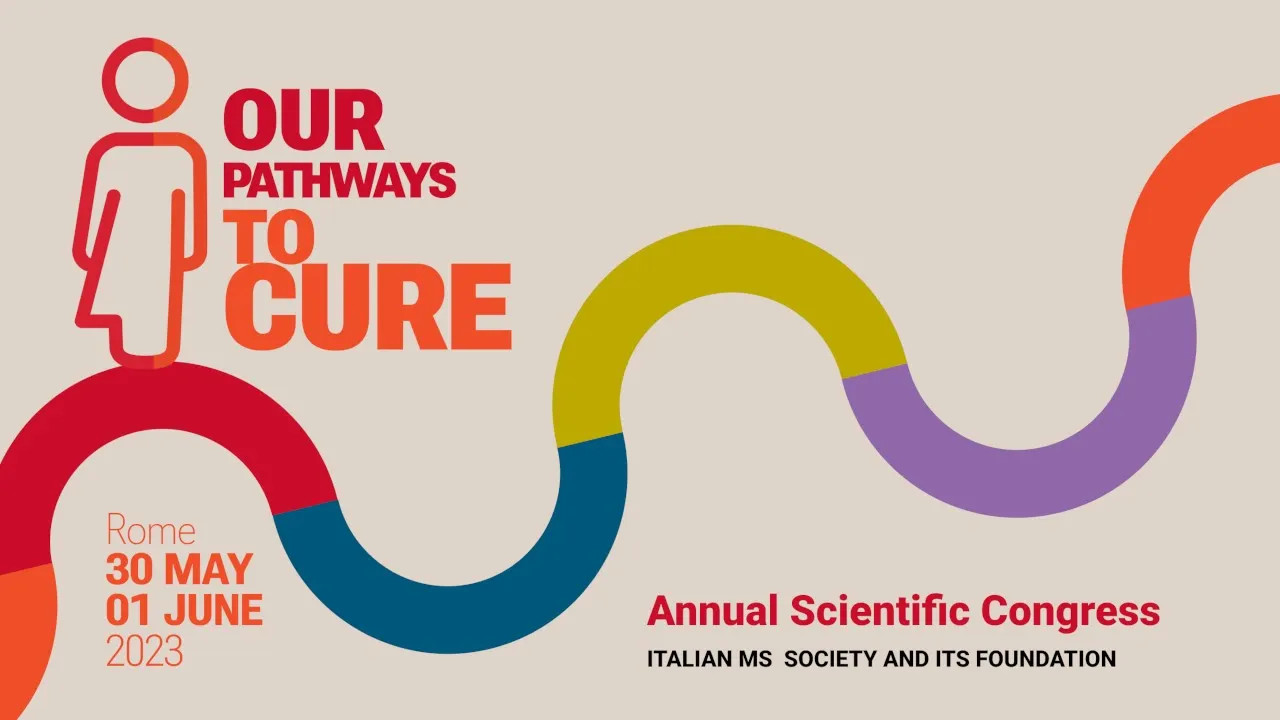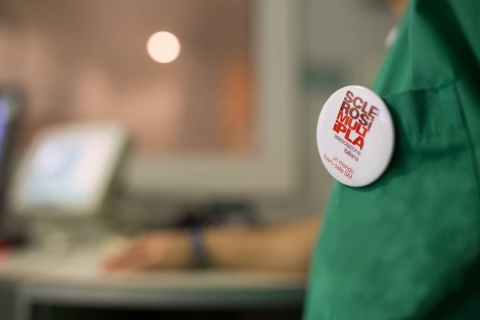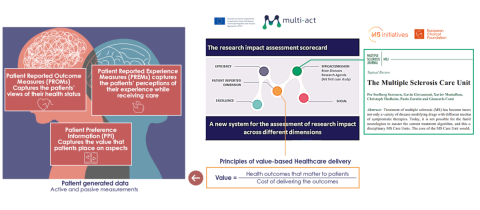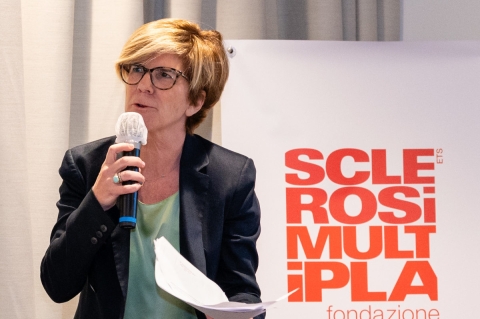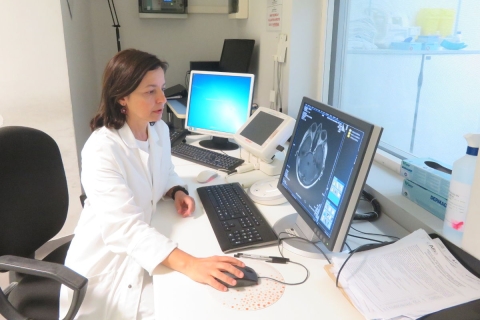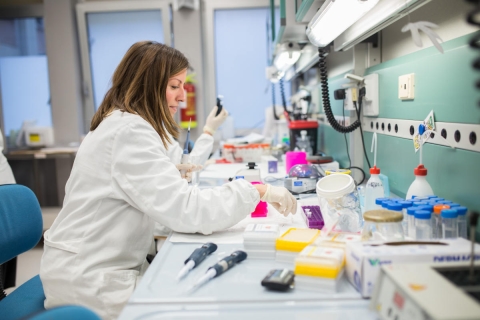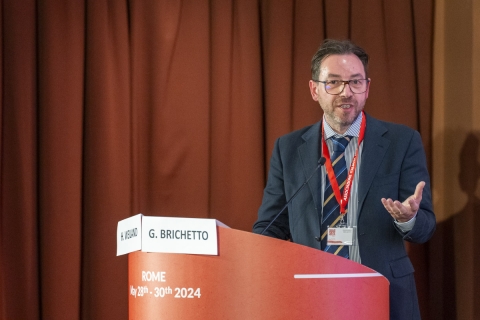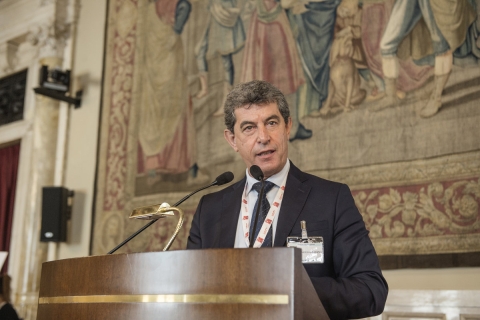In 2022, the major international associations for Multiple Sclerosis (MS) agreed to engage all stakeholders and develop a Global Research Agenda for MS. The Italian Multiple Sclerosis Association (AISM) is leading the development of this strategy together with the American MS Association and the Multiple Sclerosis International Federation (MSIF).
In a paper published in 2021 in the Multiple Sclerosis Journal, the priorities to pursue globally to overcome the remaining challenges (Pathways to Cures Roadmap) were already indicated.
The MS Agenda 2025, presented by AISM and its Foundation in 2022 on World MS Day, builds upon the path and results of the 2020 Agenda.
The MS Agenda 2025 incorporates the priorities of the Global Research Agenda and identifies strategic priorities to implement them at national and international levels, aiming to promote the collective impact of research on individuals and all stakeholders in the system.
Here are the research priorities identified in the MS 2025 Agenda
These priorities of the 2025 Agenda provide a clear framework for the objectives that already guide funding activities and research guidance in multiple sclerosis.
AISM, together with its Foundation FISM, plays a strategic partnership role with different stakeholders in the research system to promote a mission-oriented research approach of excellence (a unified ecosystem between research and care: our path to treatments) in line with the Responsible Research and Innovation (RRI) principles promoted by the European Community.
During the latest FISM Annual Scientific Congress, several speeches addressed the strategic priorities of the MS Agenda, which we want to present here for scientific exploration.
Address, promote, and fund multi-stakeholder and multidisciplinary research agendas in priority areas of mission-oriented research, with participatory governance.
The missing genetics of MS progression: failure to find or failure to exist?
Francesco Cucca
Discover the causes of MS and other related disorders.
The goal of primary prevention is to prevent multiple sclerosis in the general population before it occurs, limiting exposure to risk factors for MS. The cause of MS is still unknown, but progress has been made in identifying contributing factors and biological pathways that increase the risk of developing MS.
A wide view on environmental triggers in multiple sclerosis: how diet, viruses, and fungi influence the immune system.
Luca Battistini
Epstein-Barr virus genotypes in multiple sclerosis and their functional role in disease etiology
Rosella Mechelli
Stop the onset of MS and other related disorders at the early stage of the disease.
Secondary prevention aims to prevent the occurrence of new disease activity or lesions in the central nervous system (CNS), avoiding worsening of daily life or quality of life and changes in disease manifestations through diagnosis and the identification of new targets for developing new treatments for MS.
Diagnosis And Disease Monitoring
Decoding the roots of neurodegeneration: insights from advanced MRI and PET
Benedetta Bodini
Stoppping MS. "Lost in translation": which experimental models to use? An industry perspective
Florian Von Raison
Innovative remyelinating strategies for multiple sclerosis: focus on GPR17, a new receptor involved in oligodendrocyte differentiation
Maria Pia Abbracchio
Identification and validation of remyelinating targets of edaravone in oligodendrocyte progenitors
Cristina Agresti
Reverse or slow the progression and symptoms of MS and other related disorders and promote well-being and quality of life.
AISM and its Foundation focus their rehabilitative research on various themes: continuous validation of therapeutic rehabilitative approaches; integration of new technologies, including digital health, in rehabilitative interventions; studying the neuroplastic effect of rehabilitation and physical activity; developing or validating patient-reported measures; integrating advanced artificial intelligence techniques in the rehabilitative world and monitoring of MS.
Highlights from the 2023 Annual Rehabilitation in Multiple Sclerosis Conference, RIMS
Giampaolo Brichetto
Neurophysiological treatments to restore function
Diego Centonze
Address, promote, and fund multi-stakeholder and multidisciplinary research agendas in priority areas of mission-oriented research, with participatory governance.
FISM has developed innovative national and European models for coordinating international networks (international collaborations and industry-research collaboration) with the mission to promote a unified ecosystem between research and care.
ALAMEDA Project
Ludovico Pedullà
Address, promote, and fund digital platforms for sharing clinical, MRI, genomic, and patient-reported data, also promoting the continuous updating of the Italian Multiple Sclerosis Registry and other related disorders towards personalized treatments.
FISM continues its commitment to promote an integrated data approach towards holistic and personalized treatment of MS.
INNI: new imaging in MS research
Massimo Filippi
Introduction to the Italian Multiple Sclerosis and Related Disorders Registry
Maria Trojano

